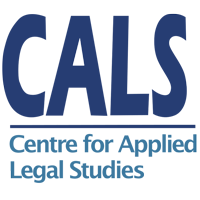Mining Charter
The mining industry in South Africa is built on a legacy of inequality and exploitation. The Mining Charter is one of the most important mechanisms we have for addressing this legacy and promoting much-needed transformation in the sector. The most recent version of the Charter, released by the Department of Mineral Resources on 15 June 2017, features some transformative amendments. These include ensuring mine workers and communities have decent living conditions and mines contribute to development in the areas where they operate.
However, this Charter and all previous versions were developed without engaging with affected communities themselves. For over 15 years, these negotiations have involved at most three parties: the state, mining companies and some organised labour. Despite being directly interested and affected, communities have not been afforded an opportunity to participate in negotiations for any iteration of the Mining Charter.
Mining affected communities instead continue to bear the greatest burdens of mining – losing farm land to mining operations, facing environmental harm and degradation and suffering from illnesses caused by pollution – without seeing the benefits. They are a core stakeholder in mining and should be engaged meaningfully on policy and regulations for the sector and programmes intended to benefit them. We cannot have a truly transformed Mining Charter or a truly transformed mining industry without meaningful community participation.
Mining Affected Communities United in Action (MACUA), Women Affected by Mining United in Action (WAMUA) and the Mining and Environmental Justice Network of South Africa (MEJCON-SA) represented by CALS have therefore challenged the Charter.
In October 2017, the community networks approached the Pretoria High Court to join a judicial review of the Charter brought by the Chamber of Mines against the Minister of Mineral Resources. The application asked the Court to set aside the current Charter for the failure to meaningfully engage affected communities. They further seek a declaratory order that mining affected communities are recognised as a core stakeholder and must be meaningfully engaged when developing any new Charter through a process that is transformative, democratic and transparent in line with the Constitution.
Despite opposition from the Chamber, the High Court ruled in favour of the community networks granting them leave to intervene in the matter as co-applicants and additionally ordering the Chamber to pay costs. The matter was set to be heard from 19 – 21 February 2018.
Late in the afternoon on 18 February 2018, we were informed that the Minister of Mineral Resources and the Chamber of Mines sought to postpone the Mining Charter review. Despite the fact that community networks were co-applicants in the challenge, they were not engaged on a postponement or invited to participate in discussions held over the weekend between the state and industry. This mirrors the daily experiences of mining affected communities across South Africa and is part of the same pattern of exclusion that led communities to approach the Court in the first place.
We appeared in Court the next day before the special allocation of the three judges. Outside, a crowd of about 1000 people gathered in support of the networks. The Court heard arguments on the postponement and recognised that our concerns about mining communities and networks being excluded from discussions were “well-grounded”. The judges ruled that the review should be postponed in order for the President to start an inclusive consultation process in revisiting the Charter. Their order recognises all the applicants as well as other mining communities as interested and relevant stakeholders that must be consulted on the formulation of the Mining Charter going forward.
Despite this historic victory and court order, communities continue to face exclusion on the development of a new Mining Charter and other policies that affect them. In March 2018, we became aware of reports that the Minister of Mineral Resources was again hosting discussions over the weekend with the Chamber of Mines and some labour unions. The Minister described this as the beginning of “the process of consultation with social partners in the mining industry [that] kick starts the engagements on the review of the Mining Charter.” Notably absent from among these ‘social partners’ were mining affected communities.
Since these initial discussions, the Minister has set up task teams on the Charter which do not feature community members. He has also held a number of consultations in mining communities around the country – though at times giving little notice or an unclear venue. Community networks have sent representatives to these consultation meetings as often as possible and to document the process and level of engagement. The consultation process came to an end in May.
A draft Charter was published on 15 June 2018 and interested and affected parties have until 27 July 2018 to comment on the draft. CALS, MACUA, WAMUA and MEJCON-SA have submitted comments available here.
The final Charter was released on 27 September 2018 and is accessible here.

